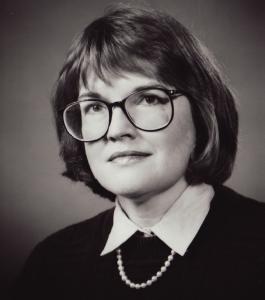It's the mid-1980's in rural Arcadia, Florida, and AIDS is scaring the public into false beliefs and rash and sometimes cruel decisions. Dr. Jerry Barbosa specializes in children's bleeding problems and cancers; he's the medical director of the Pediatric Hematology/Oncology Unit of All-Children's Hospital in St. Petersburg. When it becomes known that transfusions can carry HIV-the AIDS virus--he tests his hemophiliac patients, who require frequent transfusions to stay alive. The three hemophiliac children in the Ray family--Ricky, Robert, and Randy--all test positive for HIV.
Barbosa tells Louise and Clifford Ray to keep it a secret. The boys don't have AIDS, but public misconceptions and fears may mean trouble. The Rays, however, tell their pastor, and word spreads rapidly through the county. The boys become the focus of intense fear and threats of violence. They're harassed and threatened in and around their school.
Louise Ray tries to keep the school from placing her children in "special" classes--after all, they're not infectious--and encourages them to keep going back, despite the harassment. Other parents pull their children out of the school, declaring a boycott. Barbosa talks to school officials about HIV, but gets little response. "It's stupid," he says, "for any of these children to be treated like lepers because of the ignorance of some people. It's sad that this is happening in the 20th century." Clifford Ray concurs: ''We have alleged educators in a position to enlighten people. They've been given literally thousands of pages of medical evidence. Yet they ignore it. It's not logical. These people are acting out of fear.''
During this period, Barbosa finds another ally for the Rays: attorney Judith Kavanaugh, who agrees to represent them pro bono. She files an AIDS discrimination case against the school district. School officials offer to build a portable classroom for the three boys, and say that they can use the playground--only when no other children are present; Kavanaugh and the Rays reject the offer.
Then the Ray house is burned to the ground by an arsonist. This makes news around the country, and the Rays receive a certain fame, as well as donations. Using those donations, they move out of Arcadia and resettle 50 miles away in Sarasota, where the populace is more urban and more educated about AIDS--and where Judith Kavanaugh lives. Kavanaugh paves the way for the children to be welcomed at a school in Sarasota. School officials even administer the midday dose of AZT necessary to slow the progress of their infection. "It really is like another world," says Louise Ray.
Back in Arcadia, Kavanaugh finally gets the school district to pay damages to the boys and their parents, and to pay their costs. Barbosa and Kavanaugh join in the family's celebration and continue to remain stalwart supporters of the family.
Barbosa has faced severe criticism and derision from medical colleagues who urged him to drop the Ray children, telling him that he would damage his practice if he kept treating them and defending them in the press. Barbosa says, "I'm not worried about that. It's the children that matter. If I had to do it again, I would. Someone has to."
Both he and Kavanaugh went the extra distance, doing what they promised to do when they began their careers: help those who needed it.
Update:
Jerry Barbosa has been a hero to his patients at All Children's Hospital for 30 years, taking care of thousands of children with cancer, as well as children with hemophilia, sickle cell anemia, AIDS, and other blood disorders. His program has grown to be the largest in Florida and one of the largest in the southeastern United States.
Judith Kavanaugh remains an attorney in Sarasota.
In December 1992, Ricky Ray died of AIDS. He was 15.
In October 2000, Robert Ray, 20 years old, underwent surgery to have his spleen removed, the result of the hemophilia that he and his brothers had contracted from birth. He died soon after.
Randy Ray is living in Orlando and managing his HIV with medications.
In 2000, the Ricky Ray Hemophilia Relief Fund Act was established to provide compassionate payments to people with blood-clotting disorders, such as hemophilia, who were treated with anti-hemophilic factor between July 1, 1982, and December 31, 1987, and who thereby contracted HIV. The Act also provides for payments to people who contracted HIV from those individuals.

